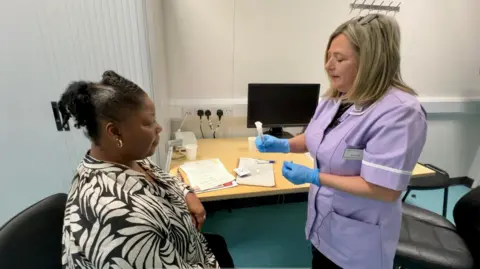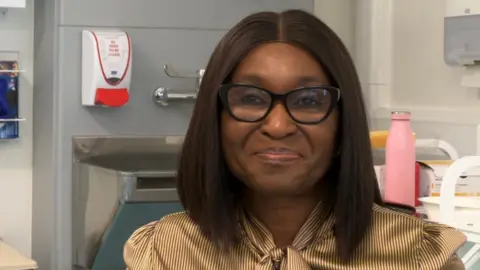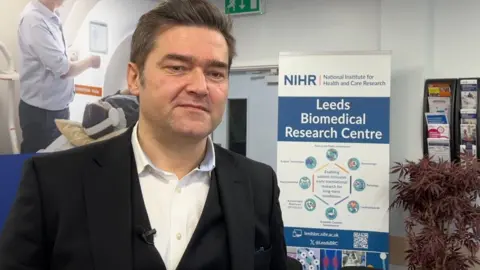Researchers urge black communities to donate DNA
 Abi Jaiyeola/BBC
Abi Jaiyeola/BBCMembers of Yorkshire's black communities are being asked to add their DNA to an NHS database to help improve medical research.
Experts at the Leeds-based National Institute of Health and Care Research (NIHR) Bioresource Centre say they need a more diverse sample group to make sure future treatments are effective for everyone.
There are about 300,000 people on its database, but researchers need more people from African-Caribbean backgrounds to contribute to make sure the data gathered is reflective of the wider population.
Prof Sinisa Savic from the NIHR said: "It's really important we have representation from all communities in this project, so we can provide the same benefit to all."
 Abi Jaiyeola/BBC
Abi Jaiyeola/BBCProf Savic, clinical director at NIHR Bioresource Centre Leeds, said: "Of course we are all the same to some degree, similar genetic traits, but that may be different in different racial backgrounds.
"So some discoveries that they make in Caucasian patients may not necessarily immediately translate across all other racial backgrounds."
People can donate samples of blood or saliva to be included in the database.
 Abi Jaiyeola/BBC
Abi Jaiyeola/BBCBernadette York, from Leeds, has recently donated a saliva sample.
She said people may have "suspicions about these kind of studies" but that "it is time to put that into the past".
She said: "We need to do things for the benefit of our children and future generations".
People who donate have their personal details removed before the samples are sent for processing.
Dolapo Ajayi, senior research nurse at Leeds Teaching Hospitals NHS Trust, said donors should feel reassured the research was secure.
"I'm part of the system so what I see is that things have changed," she said.
Leeds Black Health Initiative, a charity working with black communities to tackle health inequalities, is encouraging people to be part of the project.
Tashi Brown from the charity said: "Being a part of it will help medication and medical intervention be more suitable for everyone."
Listen to highlights from West Yorkshire on BBC Sounds, catch up with the latest episode of Look North or tell us a story you think we should be covering here.
